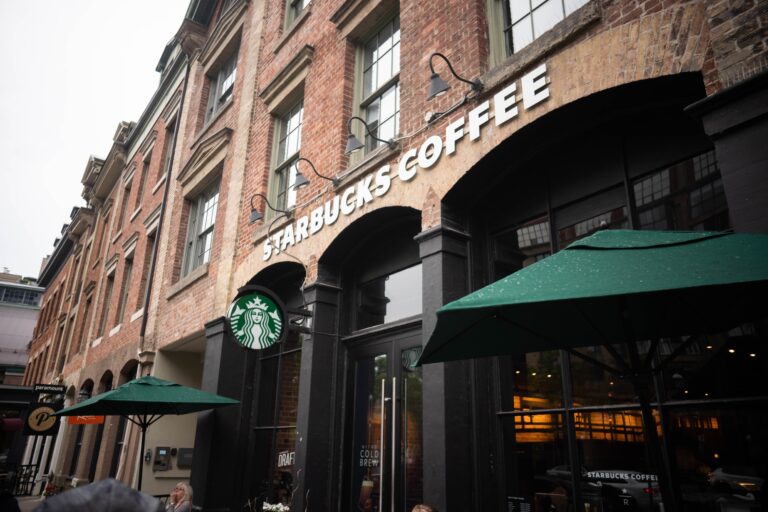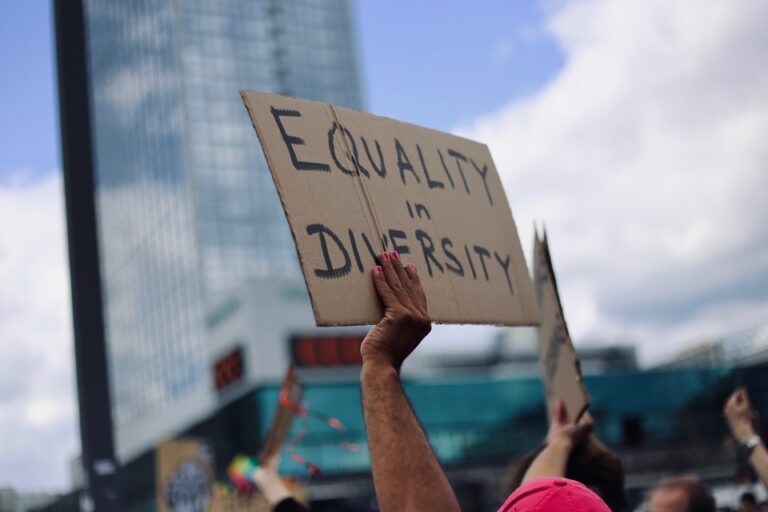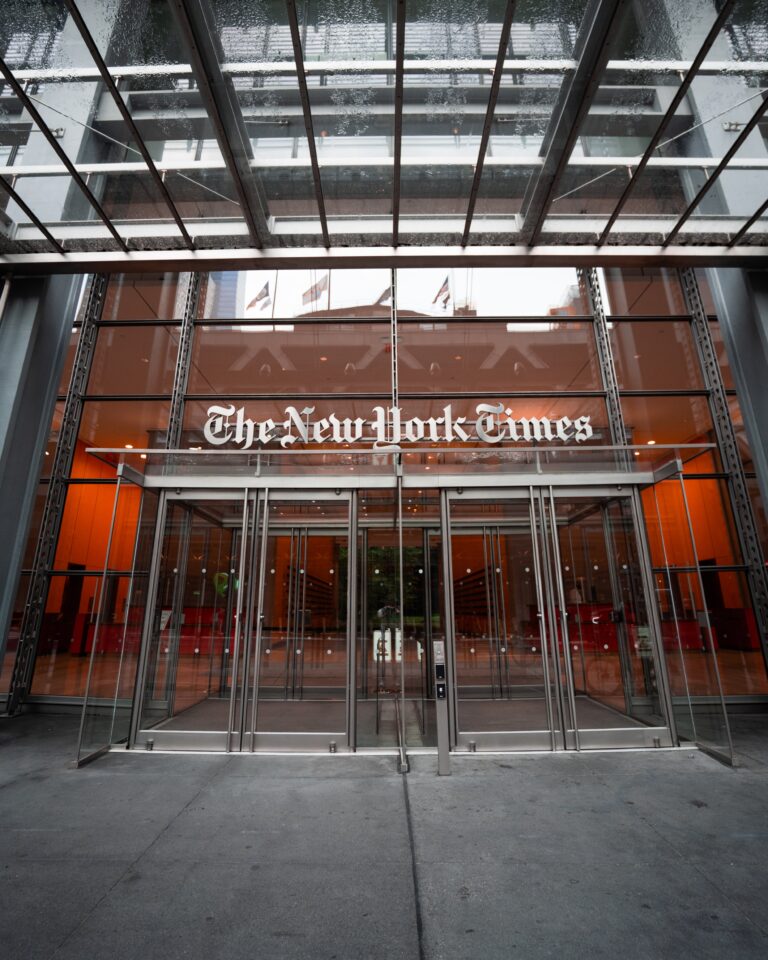
Liz Poulos is a student at Harvard Law School and a member of the Labor and Employment Lab.
When a worker is forced to defend their union organizing efforts, a new tool can provide an essential defense of Section 7 rights: recording the boss.
Whether via voice memos or video recordings, this tool has proven particularly useful for the thousands of Starbucks workers in their drive to organize. In stores across the country, Starbucks workers are forced to confront aggressive union-busting practices from management that consistently target individual organizers. Now, a recent Board decision confirms that these workers have a right to record their boss.
On the frontlines of Starbucks’ union-busting campaign
As the avalanche of unfair labor practice allegations and media coverage evinces, Starbucks approaches union-busting as a war of attrition. Mandatory meetings provide a trenchant weapon to chip away at the pro-union front, operating within a larger campaign to erode the resolve of union organizers and the workers who sympathize with them.
In one-on-one meetings, managers are encouraged to target those employees who lead organizing efforts and coerce them into conceding these efforts. As an NLRB administrative law judge concluded upon finding several unfair labor practices at Starbucks stores in Buffalo and Rochester, the company has shown “a general disregard for the employees’ fundamental rights.” At its most extreme, the conduct during these union-busting meetings and intimidating one-on-ones can verge on harassment.
Consider the experience of 19-year-old Starbucks worker and union organizer Laila Dalton, who recorded meetings with her boss to document the harassment and unjust reprimands committed in retaliation for her organizing efforts at a Phoenix Starbucks store. Speaking directly about her decision to document the harassment, Dalton explains that she started recording videos “because (she) began to feel unsafe at work” after her manager confronted her about handing out union ballot cards to her coworkers.
After management discovered that Dalton was recording her meetings with the manager, they presented her with “six months of supposed infractions” which Dalton calls “petty” excuses, like “arriving nine minutes late once and texting instead of calling to report an emergency absence on her way to the hospital.” As Dalton recognized, management was trying to lay the groundwork for her eventual termination by building up a series of alternative reasons unrelated to her organizing.
In one final recording, Dalton captured her last conversation with her manager in which Dalton asks about the origin of the new infractions. The recording culminated with Dalton fighting back tears as she tried to understand what could have justified the new disciplinary action beyond her suspicion that the real issue was her organizing. Ultimately, management fired Dalton one day before the NLRB was due to send union election ballots to the store where she had been leading organizing efforts for over a year.
After Starbucks fired Laila Dalton, More Perfect Union, a pro-worker media organization, leaked the footage of this final meeting and it quickly went viral. Starbucks Workers United also shared the video, asserting that Dalton’s firing constituted “blatant retaliation” for her commitment to union organizing at her Phoenix store.
In March of 2022, the NLRB issued a complaint against Starbucks for their treatment of Dalton, referencing the recording as evidence and concluding that the discipline it documents was clearly “in retaliation for expressing her right to organize.” Laila Dalton described the Board’s complaint as a win for herself and the union, emphasizing the importance of these recordings as pivotal evidence of what she experienced.
NLRB: “recording your boss is an organizing right!”
In the midst of a similar corporate-sanctioned pressure campaign against them, Starbucks Workers United organizers Echo Nowakowska and Tristan J. Bussiere also decided to document the treatment they were forced to navigate. They started recording their boss during a series of coercive one-on-one meetings. When management ultimately fired Nowakowska and Bussiere in retaliation for their union organizing activities, Starbucks justified this apparent violation of federal labor law by contending that their termination was due to these workers’ violation of Pennsylvania two-party privacy law.
Because these workers allegedly violated state law by recording their boss without their knowledge, Starbucks asserted, it would be improper for the judge to order their reinstatement as remedy for the retaliatory firing. This pearl-clutching about privacy by Starbucks management is ironic, considering that one of the central complaints from Starbucks Workers United about workplace conditions is that the company engages in non-consensual surveillance of employees both at work (including the use of AI employee monitoring systems) and outside of work.
Unconvinced by Starbucks’ reliance on state privacy law to both excuse the retaliatory termination an preclude its remedy, the Board asserted that these union members utilized audio recording in an effort to defend their legally-protected right to organize and resist threats of retaliation. Nowakowska testified that she “recorded meetings with managers between July to October 2019 out of concern that [Starbucks management] was seeking to retaliate against [her] protected activities… and wanted to preserve ‘a neutral source of what was said’ in [her] conversation with management.” Bussiere also “recorded meetings with management to preserve evidence of what was said in the meeting with management so (he) would have proof if the Respondent attempted to discipline (him) for pretextual or retaliatory reasons.”
The Board emphasized that the workers’ decision to record these one-on-ones demonstrated commendable foresight and an appreciation for the role of these meetings as part of management’s union-busting campaign, with these recordings “ultimately serv[ing] as evidence of [Starbucks’] 8(a)(1) violations and thus assist[ing] in vindicating the employees’ Section 7 rights.” The Board concluded that Starbucks cannot extinguish the workers’ organizing rights with state privacy law.
This groundbreaking case affirms that not only is it a worker’s right to record your boss, but if the boss tries to stop a worker from engaging in these organizing efforts this amounts to a violation of federal labor law. And further, if management tries to leverage state privacy law to undermine the worker’s right to record, the application of state law must yield to the organizing protections endowed by federal labor law.
Maintaining this right under the new NLRB: potential risks and remaining questions
While it’s possible the new Board will ultimately rescind the reasoning in the Starbucks decision, recordings will continue to provide an invaluable resource for workers and their unions. The long-term utility of this tool will need to be assessed on a case-by-case basis if the new Board decides not to enforce these protections: the appropriate use of this tool will depend upon balancing whether documenting anti-union harassment is worth the risk of reprimand and potential state law penalties for illegal recording.
But as the case of Laila Dalton demonstrates, even if the recordings don’t result or can no longer result in recourse through the Board, they will still provide a valuable organizing tool regardless of the Board’s official opinion on its relationship to Section 7 rights. These recordings shed light on large companies’ anti-union activities publicly, amplify pressure on management to change their approach to worker organizing, and foment solidarity within the union and among potential members struggling together against management union-busting.










Daily News & Commentary
Start your day with our roundup of the latest labor developments. See all
February 24
In today’s news and commentary, the NLRB uses the Obama-era Browning-Ferris standard, a fired National Park ranger sues the Department of Interior and the National Park Service, the NLRB closes out Amazon’s labor dispute on Staten Island, and OIRA signals changes to the Biden-era independent contractor rule. The NLRB ruled that Browning-Ferris Industries jointly employed […]
February 23
In today’s news and commentary, the Trump administration proposes a rule limiting employment authorization for asylum seekers and Matt Bruenig introduces a new LLM tool analyzing employer rules under Stericycle. Law360 reports that the Trump administration proposed a rule on Friday that would change the employment authorization process for asylum seekers. Under the proposed rule, […]
February 22
A petition for certiorari in Bivens v. Zep, New York nurses end their historic six-week-strike, and Professor Block argues for just cause protections in New York City.
February 20
An analysis of the Board's decisions since regaining a quorum; 5th Circuit dissent criticizes Wright Line, Thryv.
February 19
Union membership increases slightly; Washington farmworker bill fails to make it out of committee; and unions in Argentina are on strike protesting President Milei’s labor reform bill.
February 18
A ruling against forced labor in CO prisons; business coalition lacks standing to challenge captive audience ban; labor unions to participate in rent strike in MN